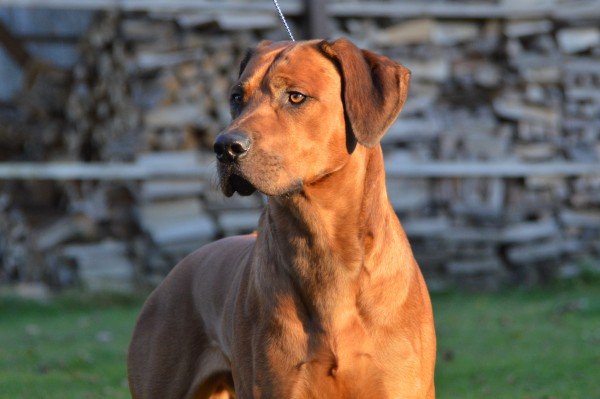When talking about big game hunting, nothing beats the thrill of putting down a powerful lion. But you shouldn’t be expecting that glorious golden creature with luxuriant mane and a majestic roar you see on your television.
Mountain lions, also known as cougars, pumas, or panthers are extremely athletic and skillful. They are excellent climbers and very capable when it comes to running for extended periods of time.
RELATED: California Mountain Lions Take Record Number of Pets
One of the best ways to go about tracking down a mountain lion, if you should be so fortunate to do so, is with a lion hunting dog. If you plan on hunting these forces of nature, you have to get properly equipped, which also means training that dog.
If you have ever watched the show Mountain Men on History Channel, you have some idea from Rich, what it means to use dogs to train a lion hunting dog. But what does it really take?
RELATED: Why Living With Cougars Makes You Safer
If you plan on training a lion hunting dog yourself, you will need help to do it right. Here are some tips and tricks to aid you in the process.
Choosing the Dog
The first thing you need to realize is that not every type of dog is capable of becoming a lion hunting dog. For that reason, you should choose the species carefully. The first on the list is, of course, Rhodesian Ridgeback. They were bred to hunt actual lions, so you can understand why they are often full of energy and mischievous.
When talking about mountain lions, the species most commonly used for hunting them are curs (Mountain Cur, Treeing Cur, Blackmouth Cur), coonhounds (Black and Tan Coonhound, Redbone Coonhound, Plott Hound) as well as the well-known Argentine Dogo.
Obedience
Hunting mountain lions is certainly no joke. Come unprepared and the beast might turn on you and your dog. Because of that, it is important to know how to behave in certain situations and when to back away. The same goes for your dog. You will have to decide for both of you when and how to act. For that reason, you will first need to teach your dog some basic obedience.
Lion hunting dogs can often get enthusiastic and over-excited, charging their targets with disregard for their own safety. At those times, you need to have full control over your lion hunting dog, telling him to stop, move, run, etc.
Take your time
Now this training requires time. There are no shortcuts about it if you want to do it properly. Start with the basics and increase your demands gradually. Teach your dog to respect your words even when something else is tempting him to disobey.
Use rewards
Use the reward system to mark the desired behavior of your dog, but also don’t be afraid to use punishment to sanction unwanted actions. In the wild, this training may very well be the difference between life and death. Your dog’s well-being should always come first, regardless of the game you’re hunting.
Dog Packs
The best way to hunt big game is, however, using a number of dogs at once. This increases the safety of your dogs as the lion is much less likely to attack when he is outnumbered. That being said, you can’t just round up random dogs and expect them to be an effective hunting pack. The dogs need to learn to work together, communicate with each other and protect each other.
Gain experience
Your best course of action is to send your dog off to a lion hunt with an already experienced dog party. This way, your dog will learn the ropes and become better and better. If you want to have a pack of your own, you can do it the same way, but introduce your dogs one by one to this experienced pack, replacing the original dogs gradually until, at a certain point, there are only your dogs in the pack.
Lead the Way
With all this in mind, you mustn’t forget the most important thing when it comes to lion hunting – yourself. Your dog pack, no matter how good they are, can’t help you if you don’t know what you’re doing in the wild. Get acquainted with your game, learn how to track animals and how to recognize the signals your dogs send out. Mountain lions leave M-shaped tracks on the ground and can be easily distinguished from your dogs’. They mark their territories by clawing trees, so learn the pattern. Also, keep in mind that mountain lions are usually loners, but it doesn’t mean that there won’t be others in the vicinity.
As we’ve mentioned before, the success of your hunting pack depends largely on you. Your animals reflect your behavior and act according to the authority you establish.








